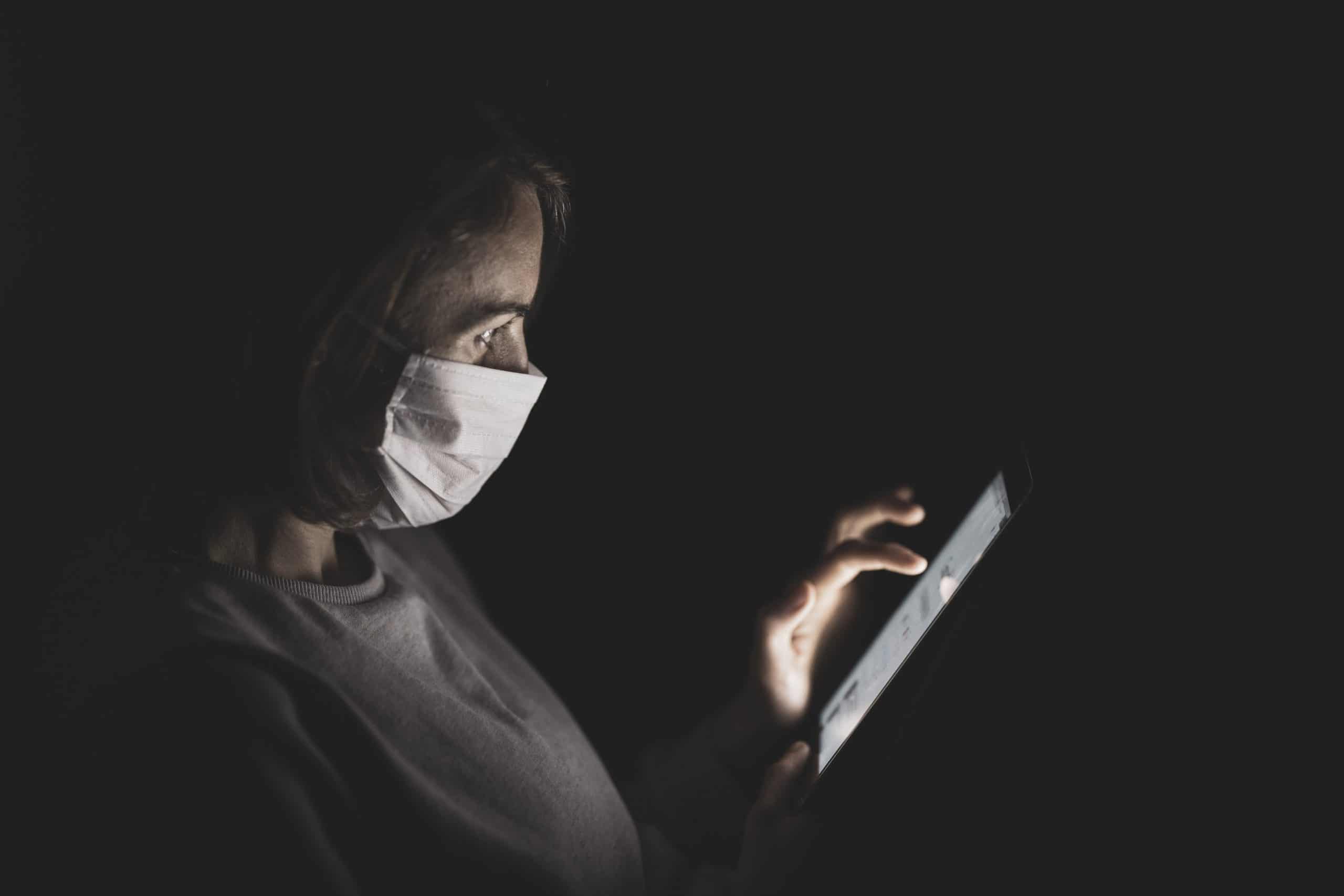
Liliana Risi has worked as a London GP in areas of high disadvantage for 15 years and is committed to proportionate, respectful, and equitable care, which has led to development of a person-centred framework called the Handy Approach to Care.
‘All real living is meeting’ Martin Buber1
COVID-19 has accelerated the uptake of digital consultations. Pre-pandemic evidence showed that many problems in general practice can be dealt with on the telephone through the ‘telephone first’ approach. Although this may not suit all patients, meet demand for care, nor reduce secondary care costs, it has transformed the way in which we meet demand and deliver care through enabling an equitable range of options and combinations to meet the access needs of patients.2
… if doctors have the resourcefulness to deeply listen and patients feel deeply heard, the mode of consultation may not matter.
Patients in a West London patient participation group (unpublished data, Etherington C, 2021) were asked recently to reflect on the opportunities of the digital conversation for themselves, and for their GPs. Thirty-seven patients responded to a semi-structured questionnaire. They identified time saved as a benefit, and loss of relational continuity as a disadvantage, both for themselves and for their GPs.
Byng and Reeve3 have argued that a greater volume of technical delivery alone won’t address key challenges of rising volume and demands. We suggest that the current focus on the mode of consultation (face-to-face or via technology) may be less important than the content of the conversation between patients and providers, and the re-establishment of relational continuity of care.
Remote consultations are likely to be more effective if there is already a pre-existing relationship established between provider and patient, even if this ’relationship’ has only been experienced on a digital platform. If, in this prior digital conversation, there has been a mutual experience of ‘digital warmth’4 (as illustrated in the below quote) then this can enable trust, which is key to effective communication. We suggest that if doctors have the resourcefulness to deeply listen and patients feel deeply heard, the mode of consultation may not matter.
Digital warmth
‘I didn’t know her particularly. She listened to me and conveyed that she had issued the prescription. At some point she explained my blood tests and said I could come off some of my medications. Her voice sounded up. She explored what made me lose weight. She was curious about me. She smiled and seemed happy and interested not rushed and busy. It felt like she had time and enjoyed talking to me and I didn’t feel like I was adding to her burden’. (Patient interviewed by Liliana Risi)
Listening
Emerging evidence suggests that the provider’s ability to listen deeply is affected by subjective and objective factors. Irrespective of the mode of consultation, a consultation in which providers experience a sense of meaning, mastery, motivation, and curiosity is superior to one where providers come with low morale, and feelings of disconnection and fatigue from unmanageable change.5 Place also impacts on care. In areas of deprivation, the environment is unfair as patients consult more often, feel less enabled after consultations, and doctors are more stressed, especially in over-centralised large practices.6
We suggest that ‘digital warmth’ is the aim of our digital consultations.
The delivery of equitable care depends on an understanding of how stigma and discrimination results in patients not being heard and being excluded from care. Caring consultations require the doctor to be fully present emotionally and mentally and to foster positive transpersonal relationships that feature love and kindness.7 The use of interpretive skills and the establishment of belief, communication, reliance, and confidence are important mechanisms for achieving more with less, placing patient and practitioner — rather than protocols and system rules — at the centre of clinical decisions.
Courage will be needed for clinicians to provide encouragement and hope to their patients in the face of all the consequences of COVID-19, short- and long-term, direct and indirect. What is needed now is for practitioners to listen to and believe patients so as to enlist strengths, share decisions and help patients navigate often unresponsive systems, to confront those systems with the reality of the patient experience (and ideally to change them),8 and to harness social capital in families and communities.
Being heard
Recent reviews of evidence to support people living with chronic pain shows that what matters to patients is reassurance that they will be believed, respected, and supported, and not blamed if a treatment does not work. Language is a powerful tool to enable and encourage.9
… ‘vaccine hesitancy’ may similarly be a term open to harmful uses; reframing it as ‘the right to choose wisely’ might enhance trust …
The CARE measure10 defines good care as holistic, patient-centred, and meaningful to patients irrespective of their social class. Pre-pandemic, this was not always achieved and there was already concern that the use of jargon leaves many patients out of the conversation, and that some ‘medical’ terms have very emotive meanings in everyday conversation, which can result in harm.11
We suggest that ‘vaccine hesitancy’ may similarly be a term open to harmful uses; reframing it as ‘the right to choose wisely’ might enhance trust and enable better conversations where in the sharing of evidence of ‘benefits, risks, alternatives, and doing nothing’ leads to true shared decision making with patients.
Conclusion
What matters in the digital consultation? We suggest that it is the same things that have always mattered in clinical encounters. That is, paying attention to ourselves, to language and meaning, and to ensuring that we establish a warm connection with the patient in which trust can develop, whether in a single conversation or over time.
We suggest that ‘digital warmth’ is the aim of our digital consultations. How we connect and converse with patients is what matters most because it is in these connected conversations that we provide containment, equity, and manage risks in the face of new challenges posed by COVID-19.
Though Buber may not have had access to our digital options, he would surely have recognised our current consultations as ‘meetings’, in which ‘real living’ takes place; our task remains to ensure that these meetings engender warmth and trust, and enable practitioners and patients to find solutions together.1
The authors confirm that the patient interviewed has provided permission for their quote to be published.
References
1. Bergman D, Bethell C, Gombojav N, et al. Physical distancing with social connectedness. Ann Fam Med 2020; 18(3): 272–277.
2. Greenhalgh T, Rosen R. Remote by default general practice: must we, should we, dare we? Br J Gen Pract 2021; DOI: https://doi.org/10.3399/bjgp21X715313.
3. Reeve J, Byng R. Realising the full potential of primary care: uniting the ‘two faces’ of generalism. Br J Gen Pract 2017; DOI: https://doi.org/10.3399/bjgp17X691589.
4. BMJ Learning. Creating ‘digital warmth’ in remote consultations, with Roger Neighbour. 2020. https://youtu.be/VAQE9RTgLGc (accessed 9 Jul 2021).
5. Andah E, Essang B, Friend C, et al. Understanding the impact of professional motivation on the workforce crisis in medicine: a rapid review. BJGP Open 2021; DOI: https://doi.org/10.3399/BJGPO.2021.0005.
6. Risi L, Bhatti N, Cockman P, et al. Micro-teams for better continuity in Tower Hamlets: we have a problem but we’re working on a promising solution! Br J Gen Pract 2015; DOI: https://doi.org/10.3399/bjgp15X687025.
7. Dieppe P, Fussell I, Warber SL. The power of caring in clinical encounters. BMJ 2020; 371: m4100.
8. Altiery De Jesus VV, Alwan N, Callard F, Berger Z. Listening to Long COVID: Epistemic Injustice and COVID-19 morbidity. OSF Preprints 2021; DOI: https://doi.org/10.31219/osf.io/tfbnd.
9. The Lancet. Rethinking chronic pain. Lancet 2021; 397(10289): 2023.
10. Mercer SW, Maxwell M, Heaney D, Watt GC. The consultation and relational empathy (CARE) measure: development and preliminary validation and reliability of an empathy-based consultation process measure. Fam Pract 2004; 21(6): 699–705.
11. Launer J. Heart failure — or a failure of imagination? Postgrad Med J 2017; 93(1101): 439–440.
Featured image by Engin Akyurt on Unsplash








Sue Thurlow is a Portfolio GP in North West London, with roles encompassing medical teaching, appraisal and coaching. She is a volunteer for Doctors Mess’ virtual groups. She has twenty-seven years’ experience in Primary Care.
Compassion (n) OED: Suffering together with another, participation in suffering; fellow-feeling, sympathy.
I’m reflecting upon supporting colleagues as the charity for which I volunteer, Caring for Carers,1 goes live on the web.
Volunteer doctors have connected colleagues to one another in confidential welcoming virtual breakout rooms in Doctors’ Mess since the beginning of the pandemic. A Nurses’ Nexus will start soon.
I’m remembering compassionate conversations with colleagues at work and online, and how those discussions lifted and supported myself and others. What mattered was the quality of the attention. I have been in face-to-face meetings which lacked warmth and humour, but also online meetings with colleagues or peers which supported and uplifted.
With colleagues, a kind word made all the difference.
With patients, listening – really listening – makes for an improved consultation and often a better diagnosis. David Zigmond refers to this as ’the art and science of pastoral healthcare’.2 Clare Etherington and Liliana Risi talk about ‘digital warmth’ in telephone consultations, with patients responding to a compassionate approach via the telephone.3 They argue that ‘the content of the conversation between patients and providers, and the re-establishment of relational continuity of care’ is more important than the mode of delivery.
This fits in with Helman’s work. He saw GPs as ‘Part of a long tradition … that has always tried to treat the person as well as their disease…. In the context of their own home, family and their community’.4
However I’m also reflecting on Yuval Noah Harari who thinks that Physicians will be superseded by diagnostic AI.5 He states ‘GPs who focus on diagnosing known diseases and administering familiar treatments will probably be replaced by AI doctors’
Add to this the (now controversial) NHS Digital First Primary Care strategy where ‘every patient will have the right to be offered digital first primary care by 2023/24’,5 which has been accelerated by the pandemic. Although the prime minister now says patients may choose to see their GP face to face, after a sustained campaign by newspapers against the digital first ‘total triage’ approach.6
Where does this leave us as GPs? For myself, I want to rebrand NHS Primary Care as “Compassion First” rather than “Digital First”.
Digital contact can be part of the offering, as long as there is digital warmth and an emphasis on maintaining relationships and listening. Questions and learning about what can and can’t be diagnosed and managed well from remote consultation alone are important and ongoing, and patients should be involved in this conversation.
I’m worrying about rigidly deployed digital demand management, rather than digital consultations via telephone/video or email as such. Nobody wants to be greeted or processed in an uncaring and clinical manner. People (both doctors and patients) want to be recognised, respected and listened to.
I’m wondering If an AI algorithm can be programmed or learn to be kind?
References
https://caringforcarers.org, accessed 20/9/21
Zigmond David , https://bjgplife.com/2021/04/23/what-do-we-want-of-doctors-beside-biomedical-science/ accessed 26/9/21
Etherington Clare and Risi , Liliana https://bjgplife.com/2021/07/12/listening-to-connect-in-the-digital-consultation/ accessed 26.9.21
Helman Cecil, Suburban Shaman. Hammersmith Health Books, London, 2006.
Harari Yuval Noah 21 Lessons for the 21st century. Vintage London , 2019
https://www.england.nhs.uk/gp/digital-first-primary-care/ accessed 21.9.21
https://www.telegraph.co.uk/news/2021/09/21/patients-have-right-see-gps-face-to-face-says-boris-johnson/ accessed 21.9.21
Featured image by Belinda Fewings at Unsplash